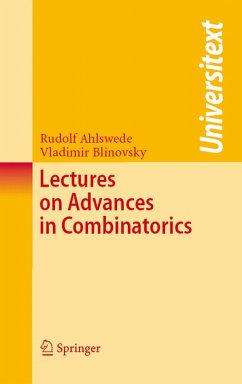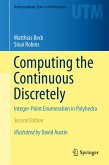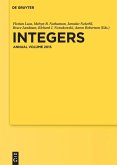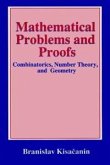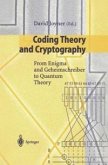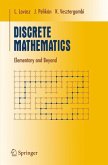The main focus of these lectures is basis extremal problems and inequalities - two sides of the same coin. Additionally they prepare well for approaches and methods useful and applicable in a broader mathematical context.
Highlights of the book include a solution to the famous 4m-conjecture of Erdös/Ko/Rado 1938, one of the oldest problems in combinatorial extremal theory, an answer to a question of Erdös (1962) in combinatorial number theory "What is the maximal cardinality of a set of numbers smaller than n with no k+1 of its members pair wise relatively prime?", and the discovery that the AD-inequality implies more general and sharper number theoretical inequalities than for instance Behrend's inequality.
Several concepts and problems in the book arise in response to or by rephrasing questions from information theory, computer science, statistical physics. The interdisciplinary character creates an atmosphere rich of incentives for new discoveries and lends Ars Combinatoria a special status in mathematics.
At the end of each chapter, problems are presented in addition to exercises and sometimes conjectures that can open a reader's eyes to new interconnections.
Highlights of the book include a solution to the famous 4m-conjecture of Erdös/Ko/Rado 1938, one of the oldest problems in combinatorial extremal theory, an answer to a question of Erdös (1962) in combinatorial number theory "What is the maximal cardinality of a set of numbers smaller than n with no k+1 of its members pair wise relatively prime?", and the discovery that the AD-inequality implies more general and sharper number theoretical inequalities than for instance Behrend's inequality.
Several concepts and problems in the book arise in response to or by rephrasing questions from information theory, computer science, statistical physics. The interdisciplinary character creates an atmosphere rich of incentives for new discoveries and lends Ars Combinatoria a special status in mathematics.
At the end of each chapter, problems are presented in addition to exercises and sometimes conjectures that can open a reader's eyes to new interconnections.
Dieser Download kann aus rechtlichen Gründen nur mit Rechnungsadresse in A, B, BG, CY, CZ, D, DK, EW, E, FIN, F, GR, HR, H, IRL, I, LT, L, LR, M, NL, PL, P, R, S, SLO, SK ausgeliefert werden.
Aus den Rezensionen:
"... Eine Besonderheit des Buches ist der ... umfangreiche Anhang, der zu jeder Vorlesung weiterführende Resultate und Anwendungen, Übungsaufgaben und offene Forschungsprobleme enthält. Wie bereits aus dem Titel hervorgeht kann das Buch als Grundlage von Vorlesungen für fortgeschrittene Studenten mit einem starken Interesse ... verwendet werden. Außerdem eignet es sich hervorragend als Ausgangspunkt für eigene Arbeit auf den behandelten Gebieten, da der aktuelle Stand der Forschung dargestellt wird, das Literaturverzeichnis keine Wünsche offen lässt und eine Vielzahl interessanter offener Probleme enthalten sind ..."
(in: Rho Mathematik Verein Uni Rostock, März 2009)
"... Eine Besonderheit des Buches ist der ... umfangreiche Anhang, der zu jeder Vorlesung weiterführende Resultate und Anwendungen, Übungsaufgaben und offene Forschungsprobleme enthält. Wie bereits aus dem Titel hervorgeht kann das Buch als Grundlage von Vorlesungen für fortgeschrittene Studenten mit einem starken Interesse ... verwendet werden. Außerdem eignet es sich hervorragend als Ausgangspunkt für eigene Arbeit auf den behandelten Gebieten, da der aktuelle Stand der Forschung dargestellt wird, das Literaturverzeichnis keine Wünsche offen lässt und eine Vielzahl interessanter offener Probleme enthalten sind ..."
(in: Rho Mathematik Verein Uni Rostock, März 2009)
From the reviews:
"The book has some very useful auxiliary material for researchers, namely the open problems at the end of each chapter, and the Appendix at the end of the book. ... there are exercises at the end of each chapter as well. ... the book will be very useful for researchers, and it could serve as the basis of graduate seminar, where each participant presents the material of one lecture covered in this book." (Miklós Bóna, MAA Online, January, 2009)
"The present book concentrates on special topics in Combinatorial theory. ... At the end of each chapter are exercises, open research problems, and conjectures. More additional material including applications and possible research programs can be found in the Appendix. ... The book can be used as a study material for an advanced graduate course on Combinatorial Theory." (Ludovit Niepel, Zentralblatt MATH, Vol. 1182, 2010)
"The book has some very useful auxiliary material for researchers, namely the open problems at the end of each chapter, and the Appendix at the end of the book. ... there are exercises at the end of each chapter as well. ... the book will be very useful for researchers, and it could serve as the basis of graduate seminar, where each participant presents the material of one lecture covered in this book." (Miklós Bóna, MAA Online, January, 2009)
"The present book concentrates on special topics in Combinatorial theory. ... At the end of each chapter are exercises, open research problems, and conjectures. More additional material including applications and possible research programs can be found in the Appendix. ... The book can be used as a study material for an advanced graduate course on Combinatorial Theory." (Ludovit Niepel, Zentralblatt MATH, Vol. 1182, 2010)

